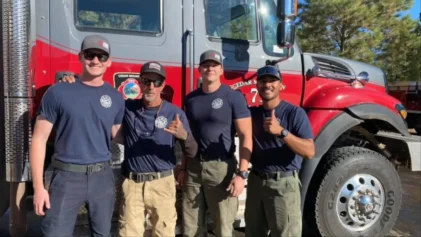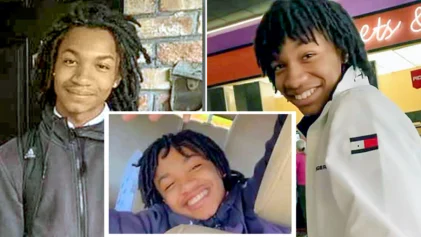A new Arizona law will make it illegal to record police closer than eight feet and activists and civic groups are worried what could happen in future police encounters without quality video to show what really happened.
Republican Gov. Doug Ducey signed House Bill 2319 on July 6, 2022; the bill passed along party lines and places restrictions on the public’s ability to record police activity.
“As an organization, we’ve fought so hard for body worn cameras, but we know they tend to get turned off, we know there have been situations where parts of the video are not shown,” said Kiana Sears, president of East Valley NAACP in East Valley, Arizona. “We are absolutely outraged, this is something we won’t stand for, we stand against it. We understand this has been passed and we are here to push back,” Sears went on to say of the law.
The law takes effect on Sept. 24, and, if violated, is a class-three misdemeanor punishable up to 30 days in jail.
The law prohibits a person from knowingly making a video recording of law enforcement activity within eight feet, with certain exceptions. The bill describes law enforcement activity to include questioning a suspicious person, an officer arresting someone or an officer handling a situation involving an emotionally disturbed or disorderly person.
Sears sees the law as a dangerous slippery slope, pointing to the effectiveness of video in other high-profile police encounters such as those involving George Floyd, Daunte Wright or ongoing cases like Patrick Lyoya’s, all of which, left officers facing charges and/or sentenced to prison.
“Not one of these egregious crimes would have been addressed if it not for video,” Sears said.
Republican and State Rep. John Kavanaugh co-sponsored the bill and said, “Police officers have no way of knowing whether the person approaching is an innocent bystander or an accomplice of the person they’re arresting who might assault them,” as reported by The Hill.
Bruce Franks Jr. is the spokesman for Mass Liberations Arizona, a nonprofit focused on police accountability and ending mass incarceration. Franks does not buy Kavanaugh’s reasoning for co-sponsoring the pro-police bill.
“I really wish I had a more politically correct term, but that’s just dumb as hell. A person holding a cell phone videotaping, the justification for the law is we don’t know if they’re an accomplice or going to attack the police,” said Franks.
John Fullinwider is co-founder of Mothers Against Police Brutality, a national organization that united mothers who lost children to police violence and promotes police accountability. Fullinwider stresses the importance of bystander video compared to police video and the difference it makes when prosecuting police who engage in misconduct.
“I have been working on police issues in Dallas since the 1970s and ever since cell phone video has become available, I don’t think I’ve seen an indictment without it,” Fullinwider said.
“Bystander video and police officer video are different, the officers of course if by law. They have to carry a camera, then they turn it on or turn it off and sometimes they say it malfunctions, but whether you ever get to see that video is the function of the attorney general, the state or the officer, you’re much more likely to see the bystander video for the public,” Fullinwider continued.
Although activists and civic groups worry the law will have wide-ranging impacts extending beyond Arizona if left unchecked, the new law does have some exceptions. The exceptions consist of a person recording police closer than eight feet if they are permitted to be on private property and police determine the bystander recording their activities does not interfere with their official duties. Another exception allows the person police are after to record the activity if police determine the recording doesn’t interfere with law enforcement activity. Lastly, while during a traffic stop, occupants of the vehicle can record if police determine they are not interfering with police activity.
K.M. Bell, a staff attorney for the ACLU of Arizona, says the law is unconstitutional. A report by The Washington Post notes that more than 60 percent of Americans live in states where federal appeals courts have recognized the First Amendment right to record police performing duties in public.
“You have a constitutional right to film officers and other government officials in addition to police performing their duties in a public place, a place you, the person recording, has a right to be,” Bell said.
Sears feels the law still goes too far despite the exceptions, and places too many people in harm’s way of breaking the law.
“Now we have more ways to become a criminal so if you’re standing six feet and you just happening upon something happening, now you’re a criminal because you’re in the police space possibly with a cell phone,” said Sears.
Sears says the new law would be a topic during the 2022 NAACP National Conference in July in Atlantic City. The NAACP president says the organization must find ways to mitigate the impact of the law and prevent other states from pursuing similar laws to disproportionately impact Black and brown communities.
“We will need a two-thirds vote to overturn this, but we have the will to organize, and we have the collective power,” Sears said of ways to combat the controversial law.


